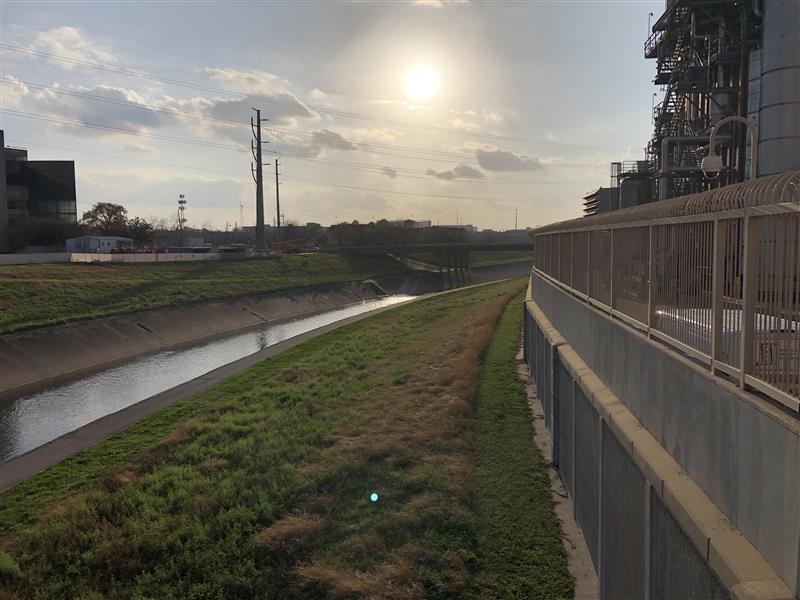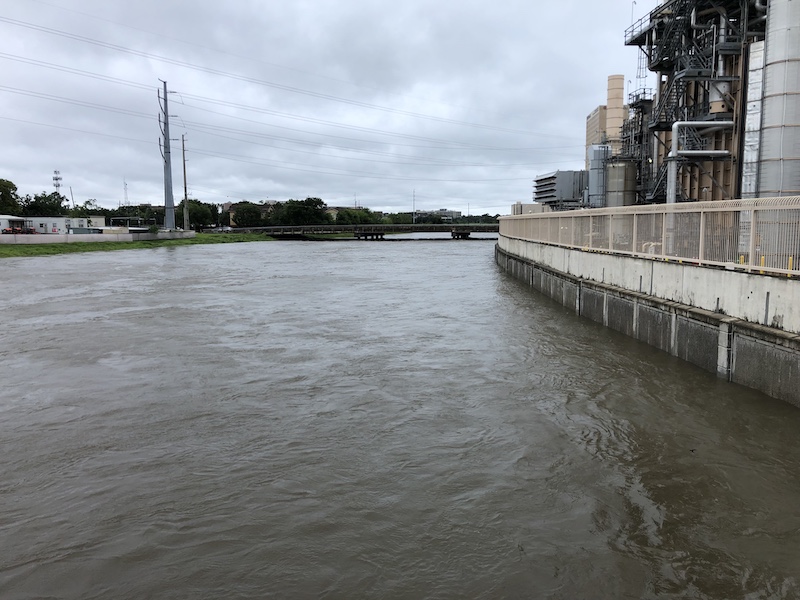Emergency Preparedness
With no exceptions for hurricanes, storms, or manmade disasters, TECO's chilled water and steam service must remain online or the health and welfare of patients at Texas Medical Center institutions and irreplaceable research could be in jeopardy.
TECO has proven it can weather storms of all shapes and sizes. The plant endured Hurricane Alicia in 1983; Tropical Storm Allison in 2001; Hurricane Rita in 2005; Hurricane Ike in 2011; Hurricane Harvey in 2017; Winter Storm Uri in 2021; and Hurricane Beryl in 2024. In each instance, due to careful planning, engineering, and investment, TECO maintained uninterrupted district energy service to its customers.

Before

After
A comparison of the view at TECO as a result of Hurricane Beryl.
Fine-tuned plan: TECO has a detailed emergency preparedness plan that outlines how to proceed if there is an impending storm or how to react if there is a sudden manmade disaster.
Optimal system design: TECO designs optimal system redundancy into all facets of its operations. The Central Plant (Paul G. Bell, Jr. Energy Center) houses a robust 48 MW combined heat and power (CHP) unit and simple cycle 48 MW generator that enables TECO to provide all of its own electricity and continue chilled water and steam service even if the electricity grid fails. TECO’s floodwall and floodgates mitigate the effects of potential area flooding. TECO’s chilled water system is interconnected between the Central Plant and South Main Plant, allowing chilled water to flow to customers from either plant if one is unable to function.
Optimal maintenance and inventory: TECO’s computerized preventive maintenance program catalogs each piece of equipment and details maintenance protocols, ensuring reliable operation. More than 13,000 spare and critical parts are kept in inventory, including motors for condenser water pumps, chilled-water pumps, cooling tower fans, boiler feed water pumps, raw water pumps, and water well pumps.
Preparedness drills: TECO conducts regular training and emergency drills with employees and contracts with a nationally recognized weather service to provide detailed forecasts for the area.
Equipment testing: TECO thoroughly tests and commissions each piece of equipment installed to ensure it works as specified under trying conditions. For instance, it tests manhole seals within our plants, verifying they can handle 15 feet of water and still hold.
Ride-out team care: TECO’s plan details the size, composition, and care of TECO’s ride-out team – the group of employees selected to stay on-site at the plant during emergencies to ensure continuity of service. TECO’s plan includes sheltering up to 35 employees in place for seven days, which means the company must prepare for their care. TECO has procedures to ensure that the proper plant and personal protection equipment, nonperishable food, bedding, and hygiene items are on-site as needed. A “just-in-time” shopping plan is ready for ordering perishable food. A dedicated kitchen team serves three meals a day to the ride-out team.
